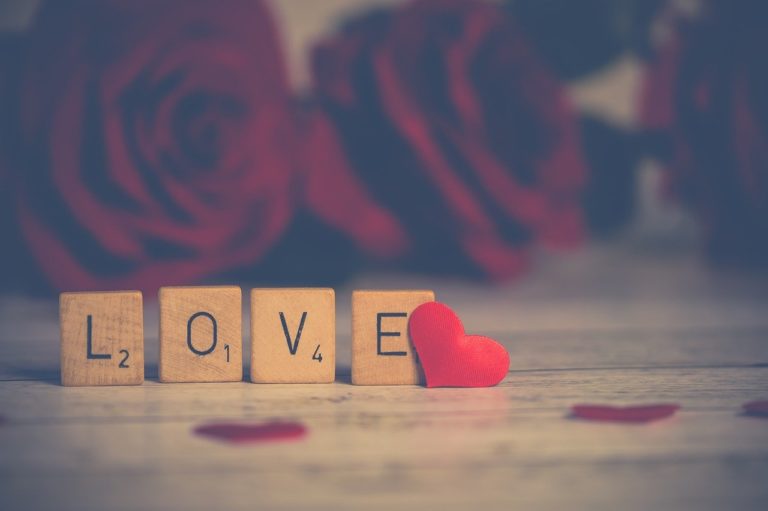Valentine’s Day is around the corner! Ever wondered how to say, “Beauty is in the eye of the beholder” in Chinese? You are in luck.
Here are several Chinese expressions about love you should know for this lovey-dovey holiday.
-
1 情人眼里出西施 (Qíng rén yǎn lǐ chū xī shī)
 Beauty is in the eye of the beholder.This expression is the Chinese equivalent to the English saying, “Beauty is in the eye of the beholder.” “情人眼里出西施” (Qíng rén yǎn lǐ chū xī shī) literally means, “In the lover’s eye Xi Shi appears.”
Beauty is in the eye of the beholder.This expression is the Chinese equivalent to the English saying, “Beauty is in the eye of the beholder.” “情人眼里出西施” (Qíng rén yǎn lǐ chū xī shī) literally means, “In the lover’s eye Xi Shi appears.” Who is Xi Shi? Xi Shi is one of the renowned four beauties in ancient China. There’s a popular Chinese saying, “西施沉鱼” (Xī shī chén yú). This means Xi Shi was so enchanting and beautiful that fish would forget how to swim when she walked by.
Thus, “情人眼里出西施” describes what your partner looks like in your eyes.
-
2 有情吃水都甜,无情吃糖也淡 (Yǒu qíng chī shuǐ dōu tián, wú qíng chī táng yě dàn)
 When there is love, even water is sweet. When there’s no love, even sugar becomes bland.“有情吃水都甜,无情吃糖也淡” (Yǒu qíng chī shuǐ dōu tián, wú qíng chī táng yě dàn) expresses the reality of what love is like.
When there is love, even water is sweet. When there’s no love, even sugar becomes bland.“有情吃水都甜,无情吃糖也淡” (Yǒu qíng chī shuǐ dōu tián, wú qíng chī táng yě dàn) expresses the reality of what love is like. This expression literally means: “When there is love, even water is sweet. When there’s no love, even sugar becomes bland.”
This describes the feelings of breakup and unrequited love. When you are in love, it is like wearing pink-colored sunglasses. The whole world is so pretty and bubbly.
However when dealing with a breakup or unrequited love, the world suddenly becomes colorless.
-
3 萝卜青菜各有所爱 (Luó bo qīng cài gè yǒu suǒ ài)
 Whether carrots, radishes or green vegetables, people have a love for each of them.This phrase is the phrase to use when someone asks you, “Why don’t you like that person?”
Whether carrots, radishes or green vegetables, people have a love for each of them.This phrase is the phrase to use when someone asks you, “Why don’t you like that person?” Literally it means, “Whether carrots, radishes or green vegetables, people have a love for each of them.” Figuratively this phrase is saying everyone likes different things. It is okay if you like something different from others.
Not only can this phrase be used in conversations about love and relationships, it can also be an everyday expression. It is an extremely versatile phrase.
For example, you might be asked what the reasoning is for liking or not liking something. You can simply give a general answer by saying, “萝卜青菜各有所爱!”
-
4 好马不吃回头草 (Hǎo mǎ bù chī huí tóu cǎo)
 A good horse will never turn around to graze on an old pasture.This phrase means, “A good horse will never turn around to graze on an old pasture.” Figuratively it means if you have self-respect then you will not go back to your previous partner. Something that happened in the past should stay in the past.
A good horse will never turn around to graze on an old pasture.This phrase means, “A good horse will never turn around to graze on an old pasture.” Figuratively it means if you have self-respect then you will not go back to your previous partner. Something that happened in the past should stay in the past. You can use this expression next time you are comforting someone who is going through difficult times.
Now that you know these Chinese love expressions you can make this Valentine’s Day meaningful by incorporating these phrases. Go out there and fall in love this season!



0 Comments